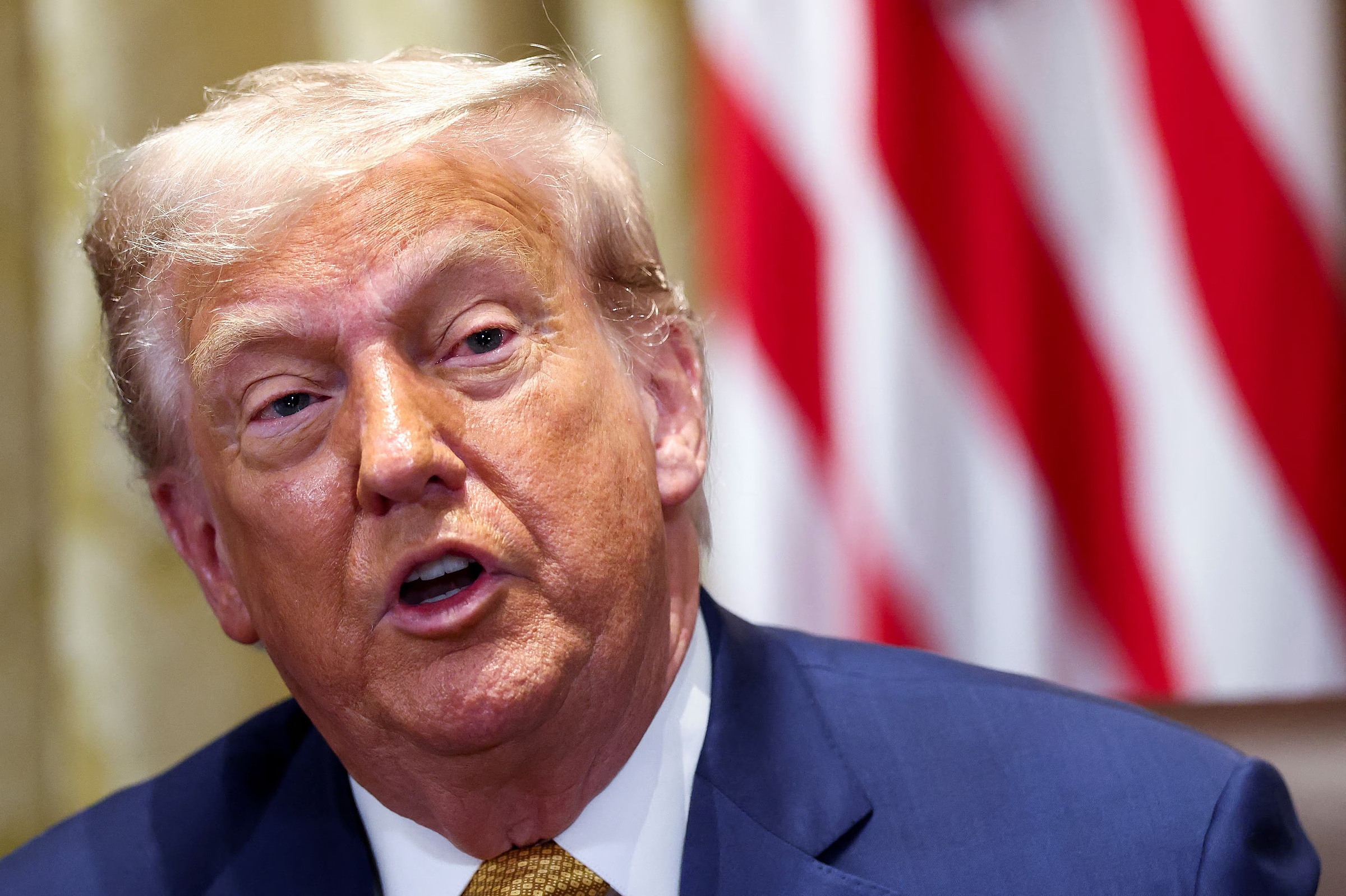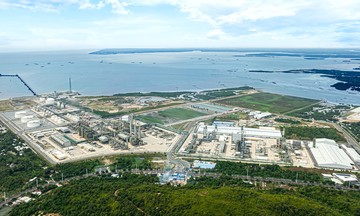On 30/7, former President Donald Trump announced on Truth Social that the US would impose a 15% tariff on imports from South Korea. This is part of an agreement to ease trade tensions with a key trading partner and ally in Asia. The agreement was revealed shortly after Trump met with South Korean officials at the White House. Previously, South Korea, a major exporter of computer chips, cars, and steel, faced a 25% tariff.
Trump stated that South Korea agreed to invest $350 billion in US projects of his choosing and purchase $100 billion of liquefied natural gas (LNG) and other energy products. Both moves align with the former president's and the Republican party's priorities, mirroring other trade deals.
 |
Former US President Donald Trump speaks during a cabinet meeting at the White House, July 2025. Photo: Reuters |
Former US President Donald Trump speaks during a cabinet meeting at the White House, July 2025. Photo: Reuters
Following the announcement, South Korean President Lee Jae Myung said their tariff agreement with the US would place the country on par with or in a better position than other nations. He added that the two countries agreed to establish a $350 billion investment fund, with $150 billion earmarked for building shipbuilding partnerships to revitalize the American shipbuilding industry with the cooperation of South Korean corporations.
Details about the investment transactions, funding sources, timelines, and binding terms for involved parties remain unclear. Trump said additional South Korean investments would be announced later.
The South Korean president will visit the White House in the next two weeks to meet with Trump. A 0% import tariff will be applied to US products entering South Korea, including cars, trucks, and agricultural goods. However, South Korea will not open its market to US rice and beef.
Under the agreement, the US will also reduce tariffs on South Korean cars from 25% to 15%. The South Korean presidential office also stated that tariffs on computer chips and pharmaceuticals would be "no worse than other countries".
Prior to the announcement, South Korean Finance Minister Koo Yun Cheol, Industry Minister Kim Jung Kwan, and Trade Minister Yeo Han Koo were in Washington to negotiate with senior US officials and reportedly met with Trump just before the deal was announced. Pressure had mounted on South Korea as Japan secured a deal earlier this month, reducing Trump's threatened tariffs to 15%.
Major South Korean companies also participated in the tariff negotiation efforts. Samsung Electronics previously signed a $16.5 billion chip contract with Tesla. Battery manufacturer LG Energy Solution also signed a $4.3 billion deal to supply Tesla with energy storage system batteries.
Tieu Gu (according to Reuters)












